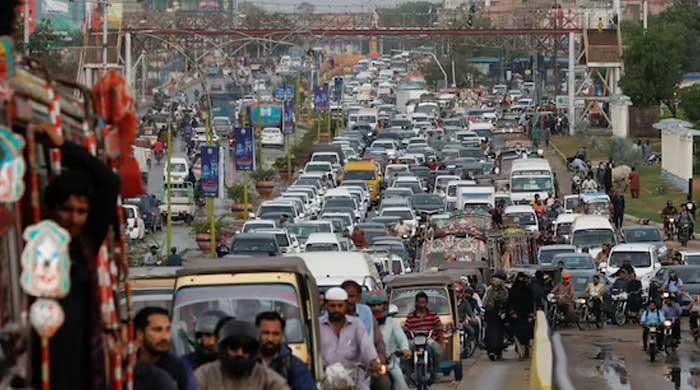Long distance Imranism: Why is Imran Khan popular amongst expats?
At one such demonstration, in favor of Imran Khan, a woman with prayer beads in her hand said: “Allah is with Imran Khan.”
May 24, 2022

Nothing, it seems, can deter the Pakistani diaspora in the United Kingdom from fiercely supporting former prime minister Imran Khan. Not the crippling inflation in Pakistan and not even his administration’s poor governance.
I witnessed first-hand how Khan’s support has swelled in the UK in the last two months, during my stay in the country.
At that time I spoke to men, women, and youngsters gathered outside Khan’s rival, Nawaz Sharif’s Avenfield flats, carrying flags of the Pakistan Tehreek-e-Insaf (PTI) and posters that read “Imported Hakumat Na Manzoor” (an imported government is not acceptable).
I met an elderly woman in a wheelchair protesting with the same zeal as the others, and children crying when Khan was removed from power on April 11.
At one such demonstration, in favour of Imran Khan, a woman with prayer beads in her hand said: “Allah is with Imran Khan.”
It was not surprising to see religion being used by Khan’s followers in Pakistan and abroad, as he has often used religion to criticise his rivals. In fact, throughout Imran Khan's over three-year-term, all of his speeches included references to Islam and Riyasat-e-Madinah.
Overseas, Khan not only evokes a cult-like following, he is also a subject of much curiosity.
From the Nepalese shopkeeper in London's Camden Market to a British journalist I met on the train to Cornwall, they all asked me the same question, on learning that I was a Pakistani: “Do you support Imran Khan?”
The Nepalese shopkeeper even called Khan a “charismatic leader”. But is charisma enough for a man who wants to be the prime minister of Pakistan again?
I put this question to a Pakistani fan of Imran Khan. He replied: “At least with Imran Khan, we can claim with confidence that he is a leader. With [Nawaz] Sharif's image is that of humiliation.”
When I asked his followers why they admired the former prime minister, the answer was always that Khan had charm, athleticism, attractiveness, masculinity, and sincerity.
Not only that, the Pakistani diaspora who support the PTI argue that they have had enough of decades of economic and political instability, corruption, and poor management in Pakistan. They add that Khan has also managed to challenge the status quo.
“If not Imran Khan, then who?” they would ask. For these supporters, there is no other alternative. “Are you ready to see corrupt politicians return to office? Better to support Imran Khan or no one," one supporter said to me.
A Pakistani academic, who lives in the UK and asked not to be named, explained Khan’s increasing popularity in the diaspora as a lack of understanding of ground realities in Pakistan.
"Many of them have no understanding of politics or policy in Pakistan,” he told me, “All that matters to them is that Imran Khan is a handsome prime minister who fits nicely with their concept of leadership."
But for some of his supporters, it is not just about politics.
In one religious gathering I attended in the UK, a female religious preacher called Khan the one who is “promised and will bring change” in the world.
Imran Khan's political campaigns have always placed an emphasis on reaching out to Pakistanis living outside of the country. Many times, through his speeches, he has given the diaspora a sense of importance for being the sole hope for a crumbling Pakistan.
With this he has built a strong foundation for long-distance nationalism, which has now become known as “Imranism”.
He has urged overseas Pakistanis to invest in the country and has lauded their patriotism. He has also championed giving voting rights to expats.
But will that help Imran Khan win the next election? We might have to wait and see.











